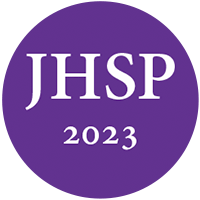The professional home for health service psychologists.
Join a community of 15,000 psychologists and trainees.
Learn it today. Apply it tomorrow.
Connecting you to what you need in your career.
Making a difference.
Batchelor, E. S. (2019). Diagnosis and treatment of mild traumatic brain injury (mTBI). Journal of Health Service Psychology, 45, 29–37.
Incidence of mTBI has become increasingly detectible with advances in technology and clinical assessment. This paper reviews basic clinical examination, treatment considerations for common neurobehavioral manifestations of mTBI, and techniques shown effective in managing neuropsychological symptoms. Predictable patterns of psychological maladjustment that may exacerbate morbidity are introduced. The author discusses integration of psychotherapeutic methods with cognitive rehabilitation, physiologic recording, mindfulness, and self-management to optimize outcome.
Registrants can read the full article on CE.NationalRegister.org.
Anderson, T., Heitger, M. & Macleod, A.D. (2006). Concussion and mild head Injury. Practical Neurology. 6, 342-357.
Backhaus, S.L., Ibarra, S.L., Klyce, D., Trexler, L.E., & Malec, J.F. (2010). Brain injury coping skills group: A preventative intervention for patients with brain injury and their caregivers. Archives of Physical Medicine and Rehabilitation. 91, 840-848.
Beck, A.T., Steer, R.A., & Brown, G.K. (1996). The Beck Depression Inventory-II. San Antonio, Texas: Psychological Corporation.
Beck, A.T., & Steer, R.A. (1993). The Beck Anxiety Scale. San Antonio, Texas: The Psychological Corporation.
Batchelor, E.S., & Taylor, E. (Workshop). (2006). Proceedings from APA ’06. Theory, Research and Practice: Psychotherapy with Neurologic Adults. Oxfordshire, UK: Taylor & Francis.
Batchelor, E.S. & Connell, Brian. (1995). Proceedings from NAN ’95. Success Rates from Mild and Moderate Brain Injury Using a Community Re-Integration Model. Oxford, UK: Oxford.
Bazaraian, J., Mclung, J., Shah, M.N., Cheng, Y.T., Flesher, W., & Kraus, J. (2005). Mild traumatic brain injury in the United States, 1998–2000. Brain Injury, 19 (2), 85–91.
Bazarian, J., McClung, J., Cheng, Y.T., Flesher, W., & Schneider, S. M. (2005). Emergency department management of mild traumatic brain injury in the USA. Emergency Medicine Journal. 22, 473–477. doi: 10.1136/emj.2004.019273.
Belanger, H. G., Curtiss, G., Demery, J. A., Lebowitz, B. K., & Vanderploeg, R. D. (2005). Factors moderating neuropsychological outcome following mild traumatic brain injury: A meta-analysis. Journal of the International Neuropsychological Society. 11, 215–22.
Bryant R.A., Moulds, M., Guthrie R., & Nixon R.D. (2003). Treating acute stress disorder following mild traumatic brain injury. American Journal of Psychiatry Psychiatry.160, 585–587.
Carroll, L.J., Cassidy, J.D., Peloso, P.D., Borg, J., von Holst, H., Holm, L., Paniak, C., & Pépin, M. (2004). Prognosis for mild traumatic brain injury: Results of the WHO Collaborating Centre Task Force on Mild Traumatic Brain Injury. Journal of Rehabilitative Medicine. 43, 84–105.
Cassidy, D.J., Cancelliere, C., Carroll, L.J., Côté, P., Hincapié, C.A., Holm, L.W., Hartvigsen, J.,Donovan, J., Nygren-de Boussard, K., Kristman, V.L., & Borg, J. (2014). Systematic review of self-reported prognosis, in adults after mild traumatic brain injury: Results of the international collaboration on mild traumatic brain injury prognosis. Archives of Physical Medicine and Rehabilitation. 95 (3 Supp. 2), S132-S151.
Cicerone, K. D., Dahlberg, C., Kalmar, K., Langenbahn, D. M., Malec, J. F., & Bergquist, T. F., et al. (2000). Evidence-based cognitive rehabilitation: Recommendations for clinical practice. Archives of Physical Medicine and Rehabilitation. 81, 1596–1615.
Cicerone, K., Levin, H., Malec, J., Stuss, D. & Whyte, J. (2006). Cognitive Rehabilitation Interventions for Executive Function: Moving from Bench to Bedside in Patients with Traumatic Brain Injury. Journal of Cognitive Neuroscience. 18 (7), 1212-1222.
Cicerone, K.D. (1989). Psychotherapeutic interventions with traumatically brain-injured patients. Rehabilitation Psychology, 34(2), 105-114.
American Psychiatric Association. (2013). Diagnostic Statistical Manual – V. Arlington, VA.
Ellison, R. L., & Stika, M. (2018). Feedback on invalid neuropsychological testing: Mild traumatic brain injury (mTBI). Journal of Health Service Psychology. 44, 19–23.
Centers for Disease Control and Prevention. (2010). Traumatic Brain Injury in the United States: Emergency Department Visits, Hospitalizations and Deaths 2002–2006. Atlanta, GA: Faul, M., Xu, L.Wald, M.D, & Coronado, V.G.
Centers for Disease Control and Prevention. (2015). Traumatic Brain Injury In the United States: Epidemiology and Rehabilitation. Atlanta, GA. Friedman T.R., Houry, D., & Baldwin, G.
Gardner, R.C., Byers, A., Barnes, D.E., Yixia, L. Boscardin, J., & Yaffe, K., (2018). Mild TBI and risk for Parkinson’s Disease: A chronic effects of neurotrauma consortium study. Neurology. 90, (20), 1771-1779.
Gardner, R.C., & Yaffe K., (2015). Epidemiology of mild traumatic brain injury and neurodegenerative disease. Molecular Cell Neuroscience. 66 (10), 75–80.
Green, P., Allen, L.M., & Astner, K. (1996). The Word Memory Test. Durham, North Carolina: Cognisyst.
Iverson, G.L., Barthe, J., Bush. S., Brosheke, D.K., and the NAN Policy and Planning Committee. (2009). Recommendations for Diagnosing a Mild Traumatic Brain Injury: A National Academy of Neuropsychology Education Paper. Archives of Clinical Neuropsychology. 24, 3–10.
David W. Lawrence, D.W., Comper, P., Hutchison, M.G., & Sharma, B. (2015). The role of apolipoprotein E episilon (e)-4 allele on outcome following traumatic brain injury: A systematic review. Brain Injury. Early Online: 1–14. Informa UK Ltd. DOI: 10.3109/02699052.2015.1005131
Link, J.S., Barker, T., Serpa, S., Pinjala, M., Oswald, T., & Lashley, L. (2016). Mild traumatic brain injury and mindfulness-based stress reduction: A review. Archives of Assessment Psychology. 6, (1). 7-32.
Levin H.S., McCauley, S.R., Josic, C.P., Boake, C., Brown, S.A., Goodman, H.S., Merrit, S.G., & Brundage S.I., (2005). Predicting depression following mild traumatic brain injury. Archives of General Psychiatry. 62, 523-528.
Kumar, S., Jahawar, A., Shaw, P., and Kumar, M. (2015). Montreal Cognitive Assessment: A screening tool for mild traumatic brain injury (P7.185). Neurology. 84 (4 Supp. 14).
McAllister, T.W. (2011). Neurobiological consequences of traumatic brain injury. Retrieved from www.dialogues-cns.org
McInnes, K. Friesen, C.L., Diane E. MacKenzie, D.E., Westwood, D.A., Boe1, S.G. (2017). Mild traumatic brain injury (mTBI) and chronic cognitive impairment: A scoping review. PLoS ONE 12 (4), e0174847. https://doi.org/10.1371/journal.pone.0174847
Nakese-Richardson, R. Yablon, S.A. & Sherer, M. (2007). Prospective comparison of acute confusion severity with duration of post-traumatic amnesia in predicting employment outcome after traumatic brain injury. Journal of Neurology, Neurosurgery and Psychiatry. 78. 872-876.
Paniak, C., Toller-Lobe, G., Reynolds, S., Melnyk, A., & Nagy, J. (2000). A randomized trial of two treatments for mild traumatic brain injury: A one year followup. Brain Injury. 14, (3), 219-226.
Sherer, M., Struchen, M.A., Yablon, S.A. Yang, Y, & Nick, T.G., (2008). Comparison of indices of brain injury severity: Glasgow Coma Scale, length of coma, and post traumatic amnesia. Journal of Neurology, Neurosurgery and Psychiatry. 79. 678-685.
Shobhit, J., and Iverson, L.M. (2018). Glasgow Coma Scale. Retrieved from https://www.ncbi.nlm.nih.gov/books/NBK513298/
Slemmer, J.E., Matser, E.J.T., De Zeeuw, C.I., & Weber, J.T., (2002). Repeated mild injury causes cumulative damage to hippocampal cells. Brain. 125, 2699-2709.
Strasburger, L.H., Gutheil, T.G., & Brodsky, A. (1997). On wearing two hats : role conflict in serving as both psychotherapist and expert witness. American Journal of Psychiatry. 154, (4), 448-456.
Stokes, L.T. (2009). Evidence for the effectiveness of Multi-disciplinary rehabilitation following acquired brain injury: A synthesis of two systematic approaches. Journal of Rehabilitative Medicine. 40, 691–701.
Stulemeijer, M., van der Werf, S.P., Borm, G.F., & Vos, P.E. (2007). Early prediction of favorable recovery six-months after mild traumatic brain injury. Journal of Neurology, Neurosurgery, & Psychiatry. 79, 936–942.
Till, C., Colella, B., Verwegen, J., & Green, R.E. (2008). Postrecovery Cognitive Decline in Adults With Traumatic Brain Injury. Archives of Physical Medicine and Rehabilitation. 89 (12 Supp. 2), S25-34.
Wade, D.T., King, N.S., Wenden, F.J. , Crawford, S., & Caldwell, F.E. (1998). Routine follow up after head injury: a second randomized controlled trial. Journal of Neurology, Neurosurgery, & Psychiatry. 65, 177-183.
Zhang, J.Y., & Feinstein, A. (2016). Screening for cognitive impairments after traumatic brain injury: A comparison of a brief computerized battery with the Montreal Cognitive Assessment. Neuropsychiatry & Clinical Neuroscience. 28, 328–331. doi: 10.1176.
Copyright © 2025 All rights reserved. National Register of Health Service Psychologists








